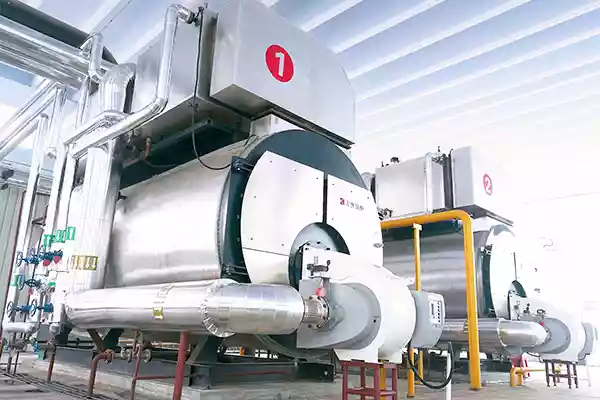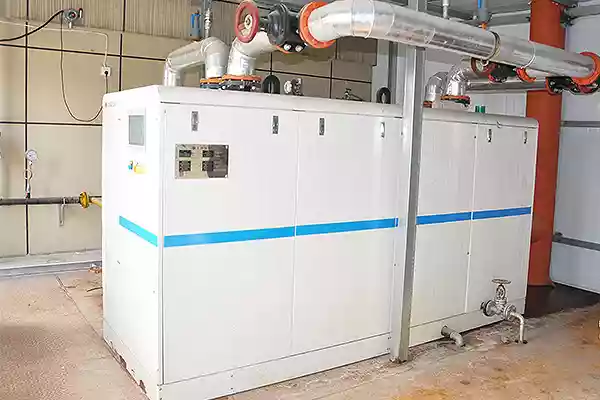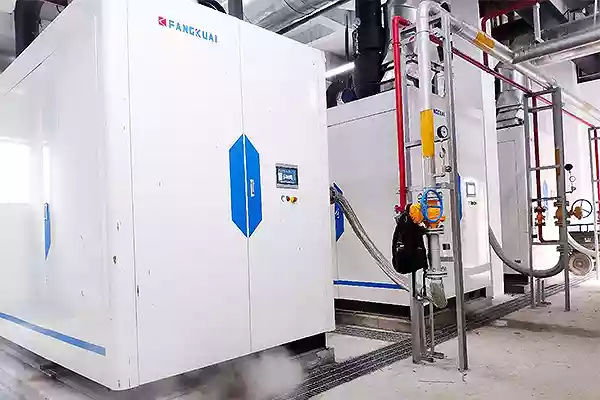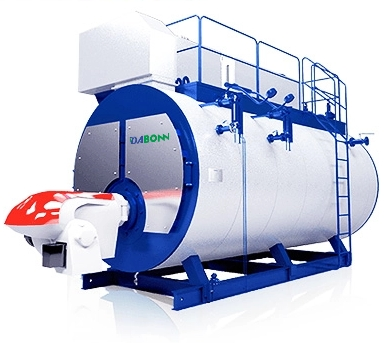
Introduction
Steam boiler vs hot water boiler – what’s the difference? In this guide, we explain the differences between steam and hot water boilers, including the pros and cons of each type for various applications.
What is a Steam Boiler?
A steam boiler is a type of boiler that creates steam and uses it to heat water or produce electricity. It works by heating water in its base, which creates steam that rises up through an insulated pipe. This causes the pressure in the pipes to rise, pushing more water out of them and creating even more pressure. The result is very high-pressure steam at the top of your system, which can then be used for various purposes.
What is a Hot Water Boiler?
A hot water boiler is a water heater that heats water using an electric or gas-fired element. There are two types of hot water boilers: tankless and storage (also known as tank). It can be used in conjunction with an electric or gas-powered circulation pump to circulate heated water throughout your home’s plumbing system.
Heating method
The heating method for each type of boiler is different. A hot water boiler uses a heating element in the water tank, whereas a steam boiler uses one in its steam chamber. Both types of boilers can be used to heat domestic hot water or space heating systems by pumping heated liquid through pipes and radiators.
Energy efficiency
Steam boilers are typically more energy efficient because they can be operated at higher temperatures, which results in fewer losses of heat due to conduction and radiation. Additionally, steam boilers use less fuel to produce the same amount of hot water than a comparable hot water boiler would require.
Water level and circulation
The water level in a steam boiler is an important factor to consider. The minimum recommended water level for your boiler should be between 1/4 and 1/3 of the total volume, but it’s also important that you maintain this level consistently throughout the operation.
If there is not enough water in the boiler, it can lead to overheating and eventual failure of your machine. It is also important that you regularly check the water levels so that you know when it’s time for refilling or draining out some excess water from your system.
The hot water boiler has a continuous circulation, which means that the water is constantly being heated and then circulated around the system. The steam boiler does not have this type of circulation; instead, it heats up only when needed.
Use comparison
Steam boilers are used for commercial and industrial heating. They’re often used in large buildings such as schools, hospitals, and factories because they can produce a lot of heat quickly. In order to do this, steam boilers use high-pressure steam that expands into low-pressure steam when it leaves the boiler.
Hot water boilers are used for residential heating systems because they typically have lower energy costs compared with other types of equipment like air conditioners or furnaces.
Advantages of Hot Water Boiler
In addition to being more energy efficient, hot water boilers also have a number of other advantages over steam boilers. These include:
- Lower installation cost
- Less maintenance required
- Easier to install and maintain than steam boilers due to their simpler design and construction (no superheaters or reheaters)
- More flexible in terms of how they can be used; can be used as an independent unit or integrated into an existing system
Advantages of Steam Boiler
Steam boilers have many advantages over hot water boilers, including:
- Efficiency. Steam boilers are more efficient than hot water boilers. They produce more heat per unit of fuel, which means that you can use less energy to heat your home or business and save money on utility bills.
- Durability. Steam boilers last longer than hot water boilers because they don’t have components that may break down over time like pumps and compressors do in some hot water systems, so it’s less likely you’ll need replacement parts down the road if something goes wrong.
- Versatility. A steam boiler can be used for residential or commercial applications! If you want to take advantage of solar power for example but don’t want all those panels sitting around outside where anyone could see them then putting them inside would work.
Disadvantages of Hot Water Boiler
- Hot water boilers are less efficient than steam boilers. This means that you’ll be paying more in fuel costs, which can add up over time.
- Hot water boilers are more expensive to install than steam boilers and may require significant modifications to your home’s piping system.
- Hot water boilers are also more complex than steam boilers, so they’re harder to maintain and repair if there is a problem with them later down the line.
Disadvantages of Steam Boiler
The disadvantages of steam boilers are:
- They require a lot of maintenance and repair. The steam boiler must be checked every year by an expert to ensure it is working properly and there are no leaks or faults in the system. If you do not take care of your boiler, it could break down when you need it most (for example during winter). This means that you will have to pay for repairs which can be costly if they are done at short notice or if parts need replacing.
- Steam boilers are more expensive than hot water boilers because they don’t use as much energy compared with other types of heating systems such as electric heaters or radiators.
- Because steam boilers don’t give out heat directly into rooms as central heating does, installation costs tend to be higher than with other types such as solar panels
Maintenance comparison
One of the most important things to consider when looking at boilers is maintenance. Many people are unaware of what it takes to maintain a boiler, but this can make or break your decision in choosing one over another.
Steam boilers require more maintenance than hot water systems because they use steam to heat up water for both domestic use and industrial processes such as manufacturing and power generation. If you have no idea how much time or money you want to spend on maintaining your system, then it’s best not to invest in something like this until after doing some research first!
Installation cost
The installation cost of the two types of boilers is also different. For example, a steam boiler costs less to install than a hot water boiler because it does not require an additional heat exchanger for heating water.
The installation cost of steam boilers can range from $1,500 to $5,000. Hot water boilers typically cost between $1,000 and $2,000 depending on their size and capacity requirements.
However, you should also take into consideration how much maintenance each unit requires and whether or not they are compatible with your existing system before making your final decision.
Conclusion
In conclusion, we can say that both steam boilers and hot water boilers are used for heating. However, they differ in many ways. If you are considering upgrading or replacing the existing system in your home or business, please contact us today: +86 18623915479!
Looking for boilers with sophisticated manufacturing, and great quality?
Fangkuai boiler can always provide what you want.
Get your best price
Quickly compare 3 FREE quotes
- Engineer quick quote
- The overall delivery speed is fast
- Financial choice
- Low installation costs and cost savings
25 years+ of boiler R&D
More than 20 innovative technologies



